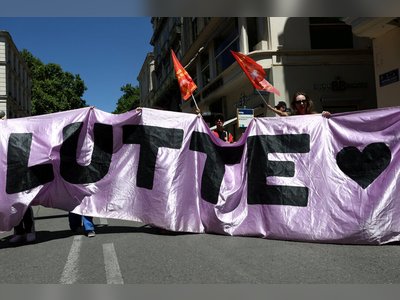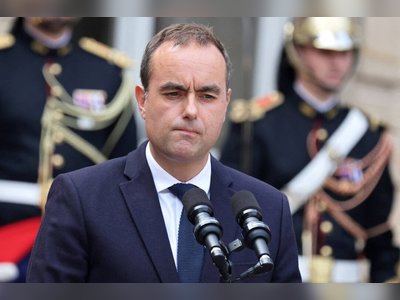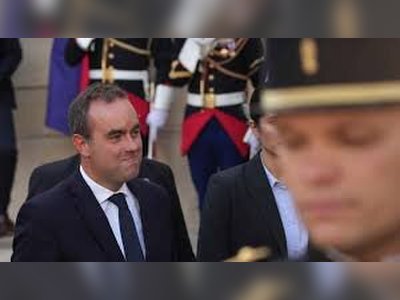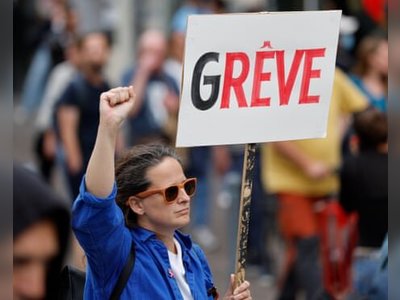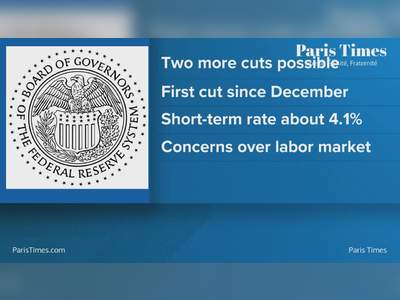Massive Strikes in France Pressure Macron and New PM on Austerity Proposals
Hundreds of thousands protest budget cuts and pension reforms, forcing concessions from Government under political and economic strain
France was shaken by widespread strikes and protests on Thursday as hundreds of thousands of workers—including teachers, train drivers, hospital staff and pharmacists—demanded that President Emmanuel Macron and Prime Minister Sébastien Lecornu drop proposed austerity measures and reverse costly reforms.
Government plans targeting public spending, pensions, and taxation have sparked fury across sectors.
Demonstrations disrupted transport, schools and pharmacies, while high school students blocked dozens of institutions in several cities.
Protesters called for more funding for public services, higher taxes on the wealthy, and rollback of reforms perceived as unfairly burdening ordinary citizens, especially the increase in retirement age from sixty-two to sixty-four.
The strikes were organized by major trade unions showing uncommon unity, under banners including “Block Everything” (Bloquons tout), which first emerged on social media.
Union leaders estimate participation in the morning rallies at around four hundred thousand, though some sources place the total participating nationwide closer to eight hundred thousand.
The government deployed eighty thousand police, gendarmes, and riot units to maintain order.
The political context is brittle: Lecornu, a loyal ally of Macron appointed after François Bayrou fell in a no-confidence vote, is battling to form a stable government and secure passage of a national budget for 2026.
Many of Bayrou’s plans—including a proposed forty-four billion euro budget squeeze—remain highly contested.
Lecornu has already dropped one of the more unpopular measures, the removal of two public holidays, and is exploring new revenue with proposals such as taxing the ultra-wealthy.
France’s budget deficit and public debt, both well above European Union limits, intensify pressure on the administration.
Analysts warn that failure to balance fiscal responsibility with social fairness could provoke further unrest.
With Parliament deeply divided and no clear majority, Lecornu must find allies among opposition parties or face legislative gridlock.
Protesters in Nantes and Lyon clashed with police—tear gas was deployed, arrests made.
Union leaders say the demonstrations mark not merely opposition to specific policies but broader anger at what many believe is a betrayal of social contract: citizens feel excluded from decisions, powerless against reforms they see as benefiting elites.
The Government has signalled willingness to negotiate while emphasizing necessity of reducing debt and deficit.
How Lecornu navigates this turbulence could define France’s political path over the next months—balancing investor confidence, EU rules, and citizens’ demands for fairness.
Government plans targeting public spending, pensions, and taxation have sparked fury across sectors.
Demonstrations disrupted transport, schools and pharmacies, while high school students blocked dozens of institutions in several cities.
Protesters called for more funding for public services, higher taxes on the wealthy, and rollback of reforms perceived as unfairly burdening ordinary citizens, especially the increase in retirement age from sixty-two to sixty-four.
The strikes were organized by major trade unions showing uncommon unity, under banners including “Block Everything” (Bloquons tout), which first emerged on social media.
Union leaders estimate participation in the morning rallies at around four hundred thousand, though some sources place the total participating nationwide closer to eight hundred thousand.
The government deployed eighty thousand police, gendarmes, and riot units to maintain order.
The political context is brittle: Lecornu, a loyal ally of Macron appointed after François Bayrou fell in a no-confidence vote, is battling to form a stable government and secure passage of a national budget for 2026.
Many of Bayrou’s plans—including a proposed forty-four billion euro budget squeeze—remain highly contested.
Lecornu has already dropped one of the more unpopular measures, the removal of two public holidays, and is exploring new revenue with proposals such as taxing the ultra-wealthy.
France’s budget deficit and public debt, both well above European Union limits, intensify pressure on the administration.
Analysts warn that failure to balance fiscal responsibility with social fairness could provoke further unrest.
With Parliament deeply divided and no clear majority, Lecornu must find allies among opposition parties or face legislative gridlock.
Protesters in Nantes and Lyon clashed with police—tear gas was deployed, arrests made.
Union leaders say the demonstrations mark not merely opposition to specific policies but broader anger at what many believe is a betrayal of social contract: citizens feel excluded from decisions, powerless against reforms they see as benefiting elites.
The Government has signalled willingness to negotiate while emphasizing necessity of reducing debt and deficit.
How Lecornu navigates this turbulence could define France’s political path over the next months—balancing investor confidence, EU rules, and citizens’ demands for fairness.

